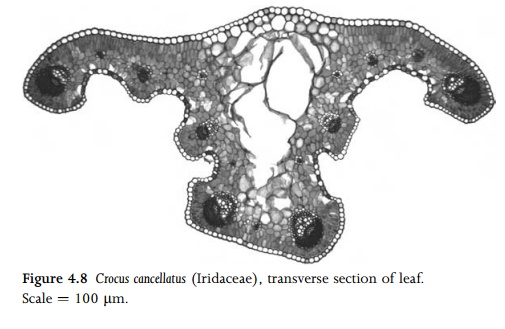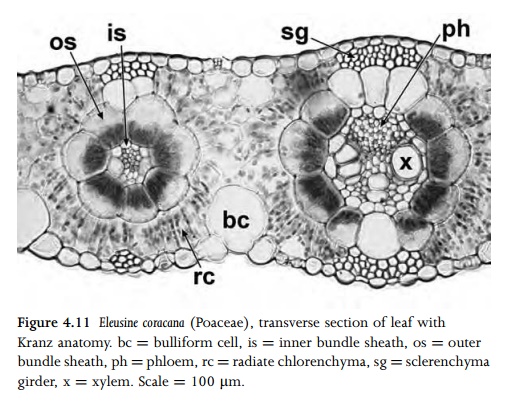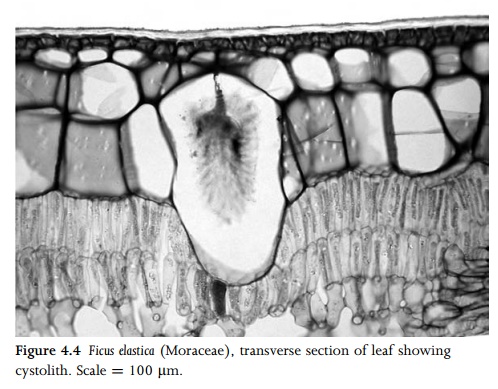Chapter: Anatomy of Flowering Plants: An Introduction to Structure and Development : Leaf
Mesophyll
Mesophyll
Chlorophyll
is contained in chloroplasts in the mesophyll, which is the primary
photosynthetic tissue of the leaf. In many plant species the mesophyll is
divided into distinct regions (termed palisade and spongy tissues), though in
others it is rela-tively undifferentiated and homogeneous throughout the leaf.
Palisade mesophyll is typically adaxial. Palisade cells are anticlinally
elongated and possess relatively few intercellular air spaces. By contrast,
spongy mesophyll is typically located on the abaxial side of the leaf, and
consists of variously-shaped cells with many air spaces between them. Both
palisade and spongy tissues can be up to several cell layers thick.
Occasionally there is intergrada-tion between the two tissues.
Many
tropical grasses, and also some other taxa that are only distantly related
(both monocots and dicots), possess a ring of mesophyll cells radiating from
the vascular bundles (Kranz anatomy;). This structure is commonly associated
with the C4 pathway of photosynthesis (Fig. 4.11). In thick leaves,
particularly those of some monocots, the central cells are often large,
undifferentiated and non-photosynthetic. In the thick ‘‘keel’’ or ‘‘midrib’’ of
Crocus leaves, a region of large parenchy-matous cells with their walls often
broken down to form a cavity causes the characteristic white stripe along the
centre of the leaf (Fig. 4.8).


In some
xeromorphic plants (e.g. Ilex and Ficus: Fig. 4.4) subdermal layers immediately
within the adaxial (or, more rarely, the abaxial) epidermis are modified into a
hypodermis. This consists of one or more layers of non-photosynthetic cells
that are usually slightly larger and thicker-walled than the adjacent

mesophyll
cells and in transverse section frequently resemble epidermal pavement cells.
Hypodermal cells become lignified in some older leaves.
Related Topics